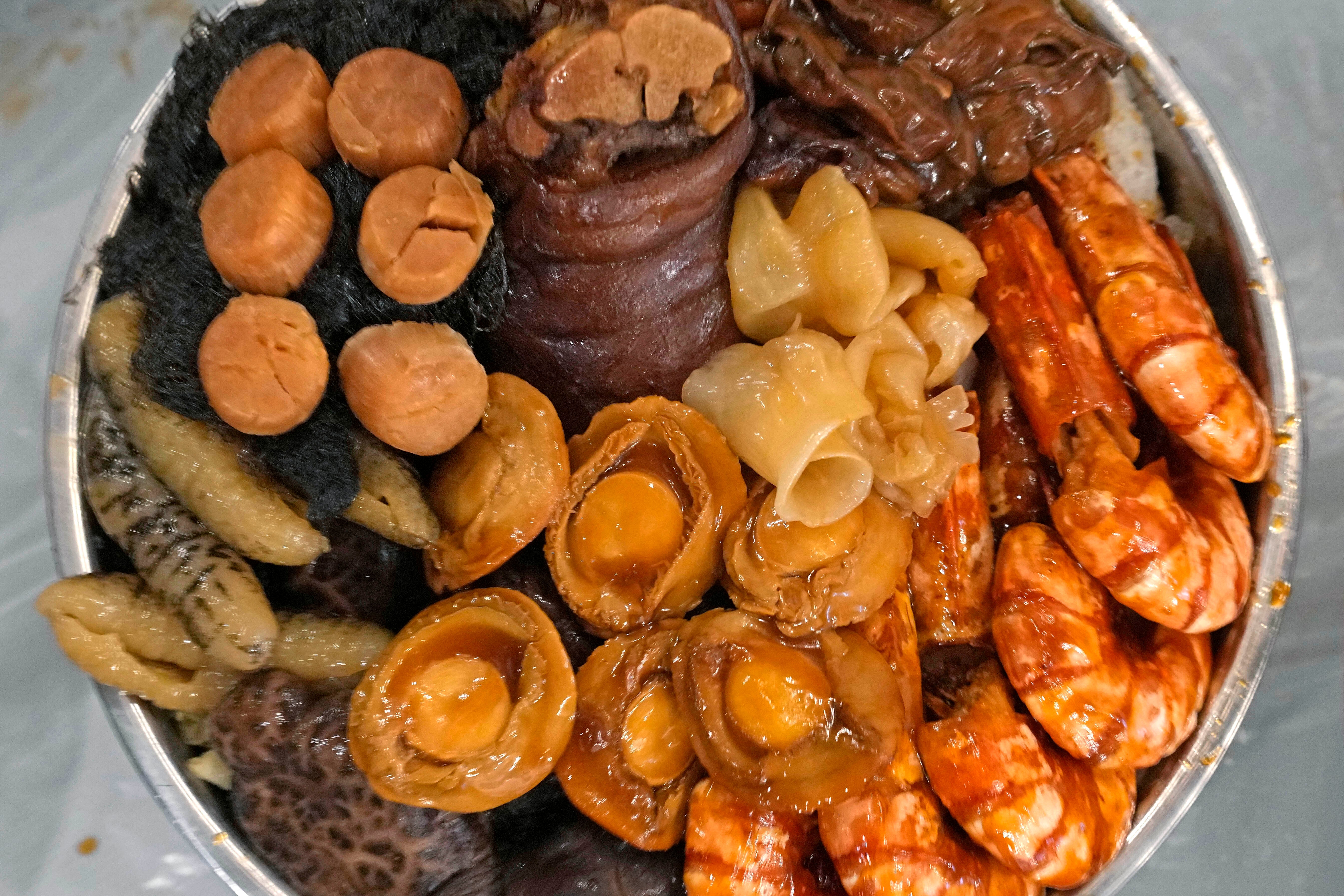AP PHOTOS: Savoring lucky Lunar New Year's eve dish at home

Your support helps us to tell the story
From reproductive rights to climate change to Big Tech, The Independent is on the ground when the story is developing. Whether it's investigating the financials of Elon Musk's pro-Trump PAC or producing our latest documentary, 'The A Word', which shines a light on the American women fighting for reproductive rights, we know how important it is to parse out the facts from the messaging.
At such a critical moment in US history, we need reporters on the ground. Your donation allows us to keep sending journalists to speak to both sides of the story.
The Independent is trusted by Americans across the entire political spectrum. And unlike many other quality news outlets, we choose not to lock Americans out of our reporting and analysis with paywalls. We believe quality journalism should be available to everyone, paid for by those who can afford it.
Your support makes all the difference.Tighter COVID-19 restrictions, including a ban on dining in restaurants after 6 p.m., mean many Hong Kong families are eating their reunion dinner on Lunar New Year’s eve at home this year.
The traditional dish known as “poon choi," or “basin food,” is a large dish filled with lotus root, radish, taro and more expensive delicacies such as prawns, abalones and meat layered on top. Each food is symbolic and enjoying the dish with family is a way of sharing hope for a good year.
To make up for lost business from the dining-in restrictions, many restaurants are offering “poon choi” takeaways. Each ingredient is prepared and cooked separately in advance, usually in the early hours of the day before the dish is assembled for customers to take home.
RenRen Heping Restaurant chef Fong Wah-yat has been busy preparing takeaway “poon choi” for two weeks, with the restaurant receiving some 425 orders for the dish.
“Chinese people like to eat these expensive foods like sea cucumbers and abalones at our Lunar New Year family gatherings because we have worked very hard over the past year,” Fong said. “We should eat these delicacies to reward ourselves for our hard work.”
Each ingredient in the dish carries meaning. Fish maw represents a constant flow of fortune, while abalone — with its shape reminiscent of gold ingots — represents abundance, according to Fong.
“All the things that Chinese people eat during Lunar New Year bring good luck, and we hope it will bring us a good year ahead after eating them,” he said.
Hong Kong’s tightened restrictions means restaurants that depend heavily on the festive season have seen their revenue dip.
“Banning dine-in after 6 p.m. actually hugely affects the business of both Chinese and Western restaurants because the income generated from dinner accounts for a great percentage of a restaurant’s total revenue,” said Mansfield Hui, owner of RenRen Heping Restaurant.
While ordinary takeaway meals cannot offset the losses much, more expensive dishes like “poon choi” help, he said.
For some customers, takeaway “poon choi” is a good alternative while the omicron variant is surging in the city.
“If you eat in a restaurant, there will be many people and during the pandemic, I do not want to eat in a restaurant with so many people,” said Ng Wai-kuen, a customer who bought takeaway “poon choi” for six people and was planning a dinner at home.